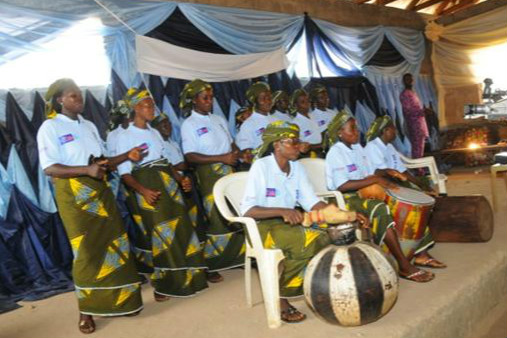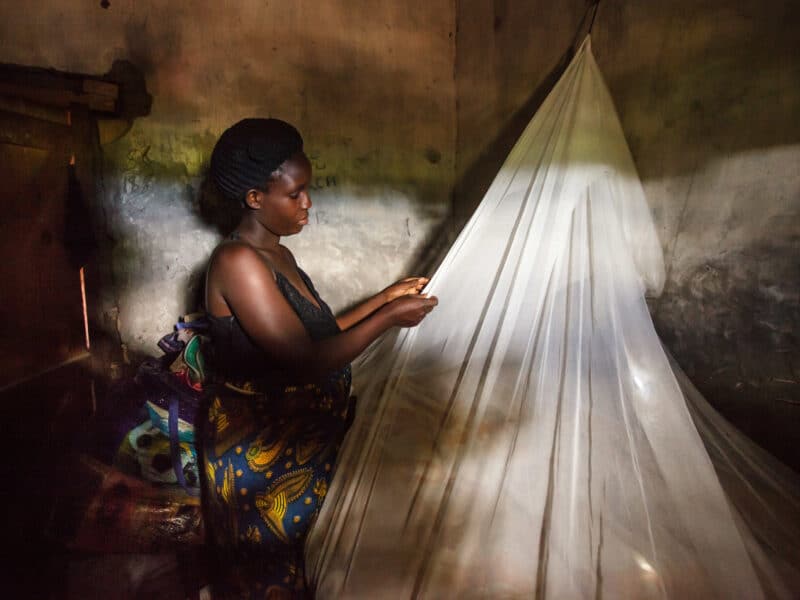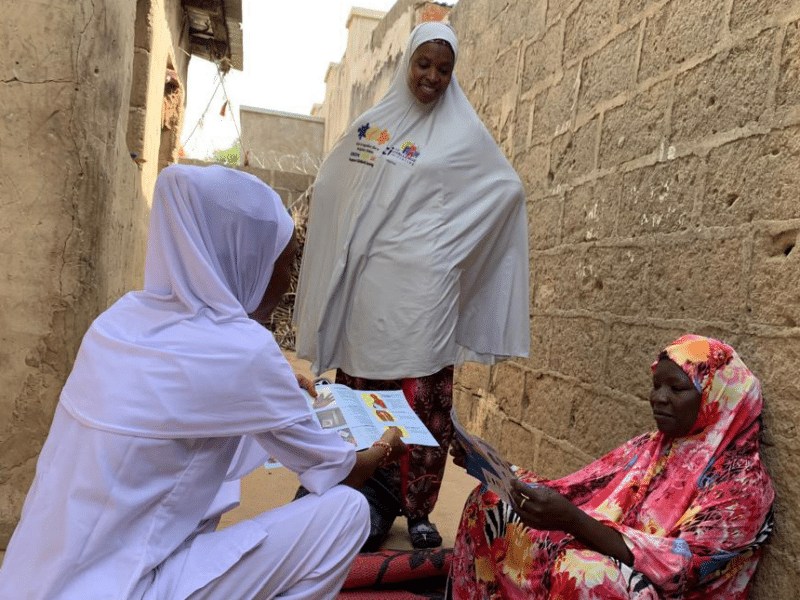Mosquito net is good
Protect it and it will last
We can sew it or patch it
To care for it, we can even tie it
This will prevent further damage.”
-Lyrics from the winning song by Bakin Ayeni community musicians
Traditional music in Nasarawa State, Nigeria, is not typically about malaria. But the over 500 people who attended the “Net Care and Repair” Song Contest, held in Kokona LGA in April 2013, believe that mosquito nets and malaria prevention are something to sing about.
The audience danced and cheered as musical groups from 20 communities across Kokona LGA performed original songs in the Net Care and Repair Song Contest to promote care for mosquito nets to prevent damage and prompt repair to ensure their longevity. The chiefs of the 20 communities, as well as representatives of the traditional ruler of Kokona and the State Ministry of Health, attended the contest to show their support.
The Song Contest challenged local music groups to develop original lyrics and score for songs about net care and repair. Songs were judged based on their message, as well as the group’s presentation, rhythm, melody and popularity. The Nasarawa Broadcasting Station (NBS), a local radio station covering the event, guaranteed that the winning song would be adopted as the promotional song for the ongoing net care campaign and played regularly on the radio.
The musical group from Bakin Ayeni community was the unanimous winner according to the judges and audience alike. While they were excited to win the contest, they expressed that the real prize was having the opportunity to share lessons about proper net care. Explained the leader of the team, “I am happy. We have been taught how to care for and repair our nets, please when we go back home, let us put it (this knowledge) to use…let us patch or tie when necessary.”
The Net Care and Repair Song Contest is part of a larger pilot intervention which is using strategic communication to promote these behaviors in Kokona to increase the useful life-span of nets. The campaign is airing a series of radio spots and employs community health volunteers to share these messages with community members through local events and house visits. The campaign is being conducted by JHU∙CCP’s NetWorks project, the Center for Communication Programs Nigeria (CCPN) and Malaria Consortium. This work is funded by USAID.





